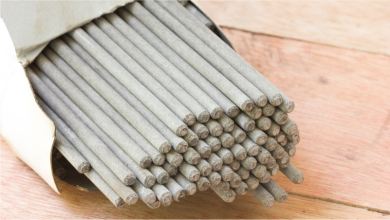The Role Of Glazing In The Reduction Of Noise

No one can dispute the reality that urban noise and activity have risen dramatically in recent decades. Every day, more cars take to the highways, and quick building projects and urban expansion all add to the outside noise, which is now seeping into houses and apartments where one would desire nothing more than uninterrupted silence.
Spider glazing, glass stairways, glass balconies, solar control glass, etc. are just a few of the cutting-edge uses made possible by technological advances in the glass production industry. Acoustic glass noise reduction is one of the most practical uses for PVB interlayers since it can significantly reduce background noise (by 50-60%). There’s also the excellent Insulated Glass Unit, which cuts down on noise by 30 decibels. If you and your family are sensitive to noise, installing these solutions on your doors and windows may help. But before you go any further, you need to know the fundamentals.
What Is Noise?
The sound that is not intended is known as noise. This refers to any noise within the house that may cause its inhabitants to become distracted or agitated.
This might be anything from local traffic or low-flying aircraft to noises emanating from neighbouring houses such as music or loud discussion. It could also be close to traffic or aeroplanes.
How It Gets Circulated
The way that sound travels through the air (as well as through solids and liquids) is analogous. The way that ripples may be observed on the surface of a pond. After a stone has been thrown into it. The waves, much like these ripples, become less intense as they go farther and further away from their point of origin.
The decibel scale is used to measure the loudness of sounds (dB). A low dB number suggests a quiet sound, whereas a high dB value indicates a loud sound.
How It Has An Impact On Us
How an individual perceives noise is highly dependent. Both on the nature of the source of the noise and the degree to which they can tolerate or accept a certain kind of noise. A person who has lived next to a busy road for many years may have gotten acclimated to the noise. Also, someone who has moved from a peaceful region to the same busy road may find the noise to be an annoyance.
The Role That Glazing Plays In The Reduction Of Noise
When you replace your windows or put acoustic secondary glazing in your house. One of the many possible advantages you may reap is an improvement in the noise insulation of your property. This is just one of the many potential benefits of these home improvement projects. The proper installation of windows or secondary glazing systems of high quality. The Excellent construction might result in a decrease in noise levels that is detectable to the human ear.
Category Of Glass
The amount of noise reduction achieved by your new windows could be affected by the kind of glass that was used in their construction. Glass may be manufactured in a variety of thicknesses, and in general, thicker glasses are better at dampening sound.
The typical thickness of glass used in domestic windows is between 4 and 6 millimetres. Laminates are a kind of window pane that consists of two or more separate pieces of glass that have been adhered together to form a single unit. Many different glass manufacturers provide specialised acoustic laminated glass for their customers to choose from.
Thickness of Glass
There is a correlation between the thickness of the glass and the amount of noise reduction it provides at certain frequencies. Therefore, a sealed double or triple-glazed unit with glass panes of different thicknesses (for example, both 4mm and 6mm), will be more effective at reducing noise across a wider range of frequencies than it would be if both panes of glass were the same thickness. This is because different thicknesses of glass panes have different amounts of air trapped between them. Want to know about acoustic glass cost? Get in touch with CUIN experts today!

Triple glazing
Triple-glazed units may give a decrease in noise. In addition to a reduction in the amount of heat that is lost. The mass may be raised to a greater extent by increasing the combined thickness of the glass inside the unit. This greater bulk will result in a decrease in the amount of noise that is transmitted.
Secondary Glazing
The term “secondary glazing” refers to the installation of an additional window or glazed screen inside. The window to reveal an already existing window. The window unit now comes equipped with an additional glass pane and an air gap. The Both of which contribute to an improvement in the noise insulation capabilities of the unit.
In some circumstances, the level of noise reduction may be further enhanced by lining. The window reveals material that serves as sound insulation. The impact that ventilation and air gaps have on the amount of noise reduction achieved. For new windows and acoustic glass double glazing to be successful in lowering noise. They must be carefully installed and sealed.
Replacing Secondary and Triple Glazing With CUIN
Crystal Unit IN windows, also known as C.U.in windows, are considered to be the ideal option for many reasons, including sustainability, energy savings, best windows for noise reduction, durability, cost-effectiveness, ease of maintenance, and thermal insulation. You may eliminate the drawbacks of double and triple-glazed windows entirely by installing C.U.in windows. Which provide you all of the advantages of double and triple-glazed windows as well as additional advantages.
While installing C.U.in windows will guarantee that you get the advantages of reduced noise and increased energy efficiency. It will also guarantee that the suspending film included in these windows will not make them as heavy as triple-glazed windows would. In addition, argon or any other inert gases are not used in the production of CUIN windows. Instead of using triple-glazed windows, they employ krypton. Which boosts the thermal insulation performance of their windows while also reducing noise.



